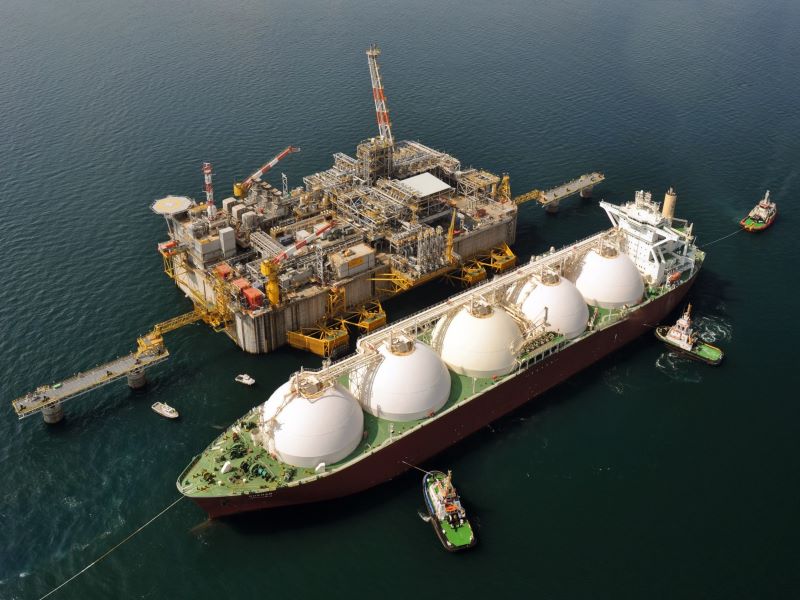Despite the escalations, Qatar maintained its exports, with its shipments over the past two weeks witnessing a 7% spike in comparison to the same period in 2023.
QatarEnergy confirmed that its liquified natural gas production has not been interrupted in light of the ongoing Red Sea escalations, noting that the events might impact the scheduling of the deliveries instead, the Qatari company said in a statement on Wednesday.
“QatarEnergy confirms that Qatar’s LNG production continues uninterrupted, and our commitment to ensuring the reliable supply of LNG to our customers remains unwavering while the ongoing developments in the Red Sea area may impact the scheduling of some deliveries as they take alternative routes,” the state-owned company said.
The statement added: “LNG shipments from Qatar are being managed” with its buyers.
The statement came following reports pointing to a delay in Qatar’s LNG shipments due to the geopolitical tensions in the Red Sea.
Bloomberg reported earlier, citing traders familiar with the matter, that Qatar is delaying some of its LNG to Europe in light of the escalations in the Red Sea.
Red Sea tensions have affected the movement of other international ships that have been forced to divert from the Red Sea.
Qatar had diverted at least six shipments on January 15 that were headed to Europe through South Africa’s Cape of Good Hope and the Suez Canal, manoeuvring the high-tension zone, according to Bloomberg, which cited its ship-tracking data.
Despite the escalations, Qatar maintained its exports, with its shipments over the past two weeks witnessing a 7% spike in comparison to the same period in 2023, Bloomberg noted.
The Red Sea escalations have intensified since the start of the year against the backdrop of the ongoing Israeli war in Gaza, where Israel killed more than 25,000 Palestinians.
The Houthi’s capture of the Galaxy Leadership on November 19, which is partially owned by an Israeli businessman, marked the first such attack on an Israel-linked vessel. Yemen’s Houthis have since vowed to include American ships in the ongoing Red Sea attacks.
The United States then launched Operation Prosperity Guardian on December 18, 2023, a coalition in a bid to tackle “security challenges in the southern Red Sea and the Gulf of Aden.”
The operation includes the United Kingdom, Bahrain, Canada, France, Italy, the Netherlands, Norway, Seychelles and Spain.
The U.S. and the UK launched their latest round of joint strikes against what they labelled as “eight Houthi targets” in Yemen on Monday. The attack marked the eighth to be carried out by the U.S. in Yemen since January 11 and the UK’s second.
On January 17, Washington re-listed the Houthis as terrorists after they were de-listed in February 2021, when U.S. President Joe Biden came to office.
Speaking at the World Economic Forum in Davos last week, Qatar’s Prime Minister Sheikh Mohammed bin Abdulrahman Al-Thani stressed the need to end the war in Gaza to resolve the Red Sea escalations.
“If we want to address the issue, we need to address the real, central issue, which is Gaza, to get everything else diffused. Otherwise, if we are just focusing on the symptoms and not treating the real issue, it will be temporary,” Sheikh Mohammed, who is also Qatar’s foreign minister, told a panel in Davos.
The Qatari official described it as “the most dangerous escalation right now, because it’s not only affecting the region, it’s affecting global trade as well.”







